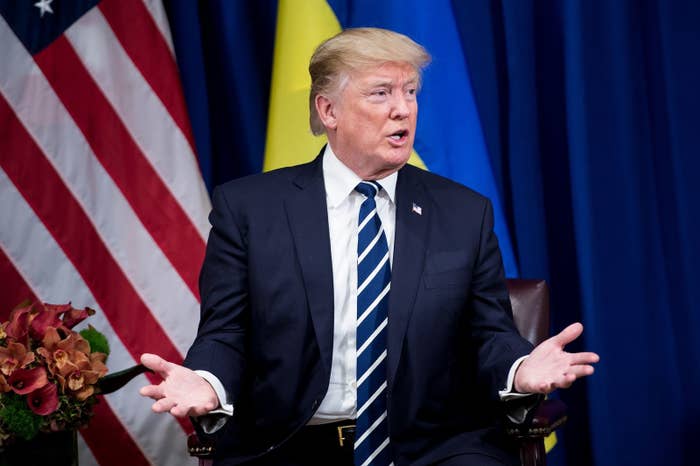
President Trump's travel ban — the second, slightly more narrow version — will end on Sunday.
The review of vetting procedures is done, as required by the executive order. Recommendations have been sent to the White House.
But the White House won't say what's going to happen next. Nor will any other officials. Everything, as of Friday afternoon, is still "pre-decisional."
As set forth in the March executive order, Acting Homeland Security Secretary Elaine Duke submitted her recommendations to Trump about those next steps. Under the order, the first step would be for Trump to issue a proclamation declaring what happens now — detailing which travelers from which countries will face what restrictions.
A White House spokesperson, though, wasn't prepared to say just yet what those were — and wouldn't commit to whether it will be decided by the time the 90-day ban on travel from Iran, Libya, Somalia, Sudan, Syria, and Yemen ends on Sunday.
Raj Shah, the White House principal deputy press secretary, did acknowledge that "[t]here are some contingency plans" if Trump does not act by Sunday. But he wouldn't say what those are.
On Friday morning, the Wall Street Journal reported the administration's next planned steps — "more targeted restrictions affecting a slightly larger number of countries." Afterward, the administration hastily assembled a call with reporters to discuss "enhanced global security measures."
Department of Homeland Security spokesperson David Lapan began the call by saying that the officials — from DHS, the State Department, and the White House — were "not going to get into" what countries would be restricted and what restrictions they would face.
Miles Taylor, the counselor to Duke, detailed that Trump "is considering his options" — the result of the process that led to her "tough and tailored" recommendations for next steps.
The process, Taylor explained, was seeking "information baseline requirements" from countries across the globe that addressed two issues: identification information and information relating to public safety and national security. The aims, he said, are to "validate identity" and enable officials to establish that would-be travelers are "not a threat to the country."
While most countries met those standards from the start, others required additional engagement once the federal government shared the baseline requirements with foreign countries in July.
"Some countries were still unable or deliberately unwilling to comply," he said of the final group — ones now included in Duke's recommendations for continued restrictions. "There is a spectrum [of recommendations]."

